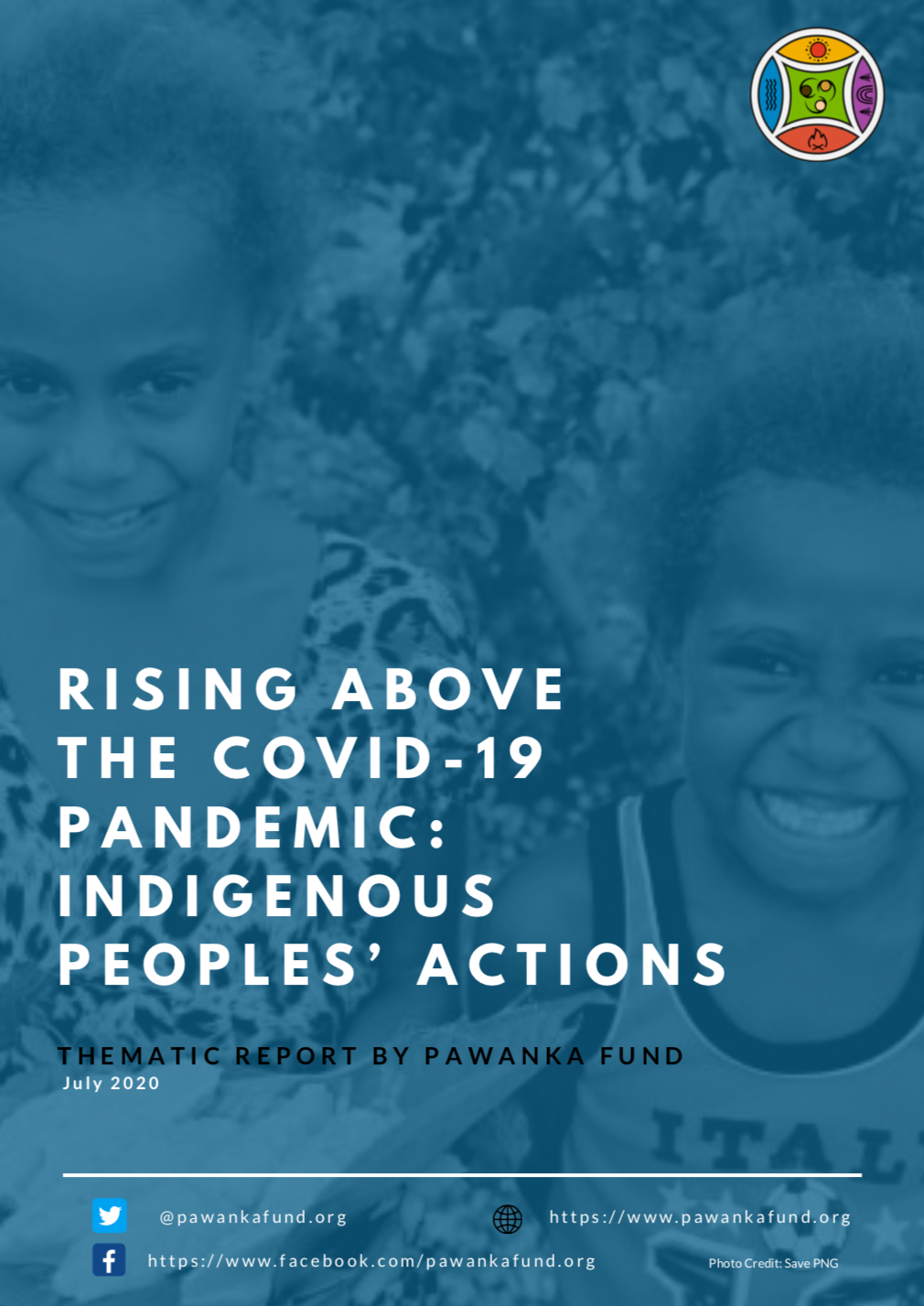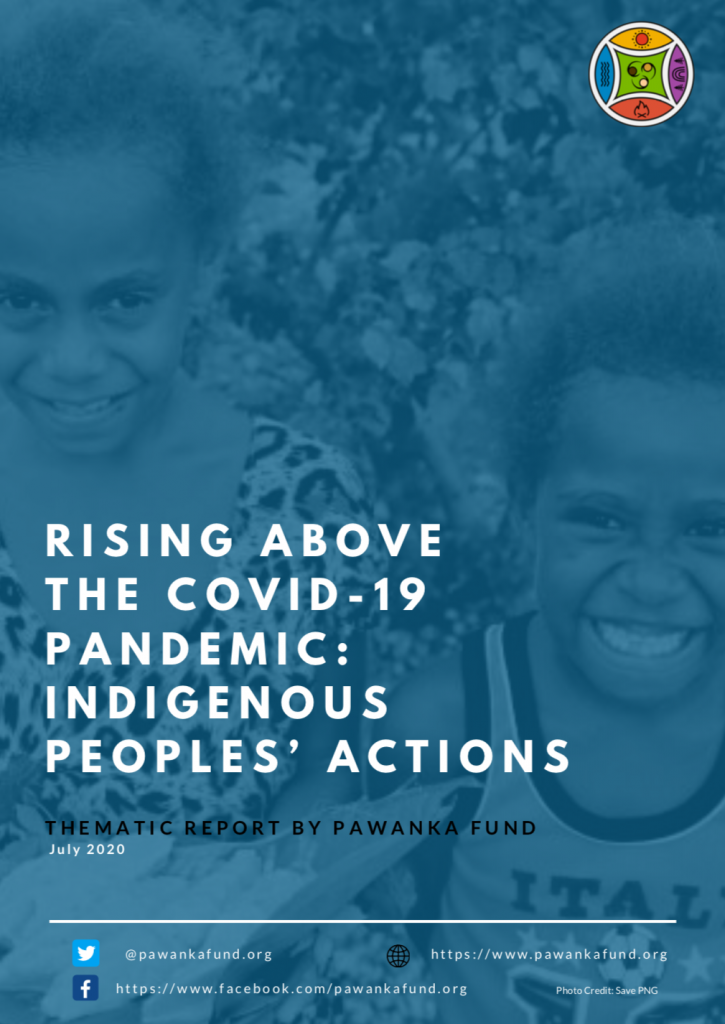THEMATIC REPORT BY PAWANKA FUND

INTRODUCTION
As the world grapples with the COVID-19 pandemic, the crisis has exposed existing inequality and decades of neglect and discrimination against indigenous peoples. These issues are exacerbating their vulnerabilities to this pandemic, not only in health terms but also their collective survival and wellbeing. Millions of indigenous peoples continue to live in isolated or remote communities where poverty prevails and sanitation facilities and access to health services are almost non-existent, in addition to the lack of other basic social services and infrastructure. This situation results in very low chances of recovery for indigenous peoples who become infected with the virus, as well making control of the virus’ spread in their communities very challenging.
The impoverished condition of many indigenous communities, including those in urban areas, also limits their capacity for undertaking preventive measures, such as having appropriate masks, washing hands with soap and clean water, and obtaining sufficient and nutritious food, among others. Further, there is very little availability of accurate and timely information in accessible formats and languages understood by indigenous peoples, resulting in more confusion in certain communities and further increasing risks of community spread.
In most countries, governmental response measures to slow the advance of the pandemic have been insufficient and/or inappropriate. In fact, the weak response has exposed existing systematic discrimination against indigenous peoples. This includes disproportionate delivery of relief packages and preventive equipment, cash transfer, and other forms of livelihood assistance to indigenous peoples.
Likewise, the lack of safe water sources for drinking, sanitation, and hygiene and communication facilities in many indigenous communities is also not being addressed as part of governmental pandemic response.
Furthermore, the imposition of strict lockdowns and social distancing without providing the appropriate economic and social support mechanisms to indigenous peoples has led to, among other issues, hunger and starvation, loss of livelihood and incomes, and increased violence against women and girls. Even more deplorable while indigenous communities are in lockdown are increased land and resource seizures and criminalization and human rights violations including extrajudicial killing of indigenous land rights defenders under the cover of the COVID-19 pandemic. State response measures have resulted in more serious economic, social, and cultural challenges and difficulties to indigenous peoples, particularly indigenous women, elders, children, and persons with disabilities as they cope with the pandemic.
These and other challenges facing indigenous peoples propelled the Pawanka Fund to support the efforts and initiatives of indigenous peoples to cope with this pandemic. In particular, Pawanka Fund’s organizational partners have taken specific steps to respond to the urgent needs of indigenous communities with financial support from Pawanka in combination with other financial and non- financial resources. This report describes specific conditions facing indigenous communities in different regions and also actions taken by indigenous organizations and their communities in response to the COVID- 19 pandemic. These varied actions and efforts by indigenous peoples can be replicated as appropriate with more support from and cooperation with other key actors.
DOWNLOAD REPORT HERE: PAWANKA FUND THEMATIC REPORT 2020_LOWRES

